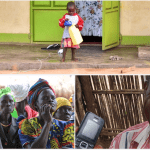NextBillion is on Vacation – Check Out Our Top 10 Recent Posts
With the Independence Day holiday this Wednesday, it’s officially summer vacation time for much of the U.S. – and NextBillion is no exception. Since our editors will be enjoying some much-needed time off this week, we won’t be publishing new blog content until next Monday, July 9 (though we’ll continue to update our newsfeed, jobs page and events calendar throughout the week).
In the meantime, we’ve compiled 10 of our most-read recent posts, which happen to include some of our more thought-provoking content of the year. We hope you enjoy them, and we look forward to bringing you more original analysis and insight from the world of social business next week.
A massive new financial health dataset, courtesy of Gallup and MetLife Foundation, has sparked debate about the real impact of financial inclusion on low-income customers. This data has led some of the industry’s major players to “ask ourselves with humility if financial inclusion is leading to financial health.” Sonja E. Kelly and Evelyn J. Stark highlight the findings and share their frank views in this important post.
Your Customers Aren’t Data Points: How Social Enterprises Can Avoid Three Impact Investor Red Flags
“While there’s a lot of material on the internet on ‘how to pitch your enterprise,’ either people aren’t reading it, or don’t seem to understand what’s being said, because I keep seeing the same set of mistakes being repeated.” That’s how impact investor PR Ganapathy, president of Villgro, introduces his “investor’s perspective” on how to avoid the most common mistakes entrepreneurs make when fund-raising. If you’ve ever found yourself across the table from an impact investor, don’t miss this thought-provoking post from our “Survival Guide for Raising Capital” series.
Blockchain technologies present tantalizing opportunities for social impact across many sectors, including agriculture. Researchers at Stanford University analyzed 193 organizations using blockchain to drive social impact. In this post, part of NextBillion’s series “High Tech Buzzwords: Hype or Real Impact,” Nikki Brand explores how the technology can “transformationally improve the operations of agricultural supply chains, from farm to fork.”
Is Financial Inclusion Stalling – And Are the Numbers Even Accurate?
In two posts written in the aftermath of the disappointing results in the most recent Global Findex survey, Elisabeth Rhyne and Sonja Kelly discuss the sobering reality behind the (apparently) promising headline that 69 percent of the world’s adults now have bank or mobile money accounts. And Daniel Rozas makes a compelling case that the Findex numbers themselves don’t always stand up to scrutiny. These posts are essential reading for anyone interested in the financial inclusion movement.
How Western Definitions Perpetuate Ethnocentric Bias – Even Among the Social Impact Crowd
Is the social impact sector “hindered by obsolete definitions that perpetuate the same ethnocentric lens that has challenged humanitarian aid over the past century?” That’s the premise for this challenging post from Rebecca Kaduru, which uses a revealing anecdote involving a multinational corporation to highlight the real-world impact of judging another culture solely by the values and standards of one’s own.
Hardware Innovation is … Hard: How These Entrepreneurs Overcame the Challenges
Sometimes it seems like “innovation” has become synonymous with “mobile apps,” and the development sector is no exception. But there are plenty of intriguing innovations that have nothing to do with tapping and swiping. Arun Venkatesan highlights some impactful examples in this post, part of our series on “Offline Innovation.”
Why Coffee Farmers are Poor – And How an Innovative Ownership Model Can Help
Joseph Nkandu grew up on a coffee farm in Uganda, where he witnessed how much his parents had to toil to make money from coffee – which happens to be the country’s main cash crop and the second most traded commodity in the world. He explores why coffee farming often provides farmers with far less than 5 percent of the retail value of their crop – less than US$1 a day – and shares the innovative “farmer ownership model” he has developed to address this imbalance.
‘The Dumbest Waste of Time Ever’: How the Development Sector is Failing MSMEs
Lucie’s sales numbers were impressive and growing. She delivered her goods at decent prices, had no problem finding new customers, and routinely sold out her inventories. So why was she losing money? Donna Rosa uses Lucie’s example to highlight what the development sector is overlooking in its support of small enterprises: The need for essential business skills training.
The relationship between funders and the social impact organizations they support is defined by power imbalances, misaligned expectations and mutual distrust, say social impact leaders and advocates Jessamyn Shams-Lau, Jane Leu and Vu Le. This dysfunction inspired their new book, “Unicorns Unite: How nonprofits and foundations can build EPIC Partnerships,” and the three co-authors discuss what’s gone wrong, and how the sector can turn things around, in this Q&A – an important, if potentially uncomfortable, conversation.
Some say there is more “tech” than “fin” in fintech innovation. But when it comes to the oldest sector in the world, agriculture, this dichotomy isn’t sustainable, says Ruchit G Garg: Both a financial and a technological revolution are necessary to meet smallholders’ burgeoning demand for finance. He explores how the latest technologies are making this revolution possible, in this post from our “High Tech Buzzwords: Hype or Real Impact?” series.
James Militzer is an editor at NextBillion.
- Categories
- Agriculture, Finance, Investing, Social Enterprise



